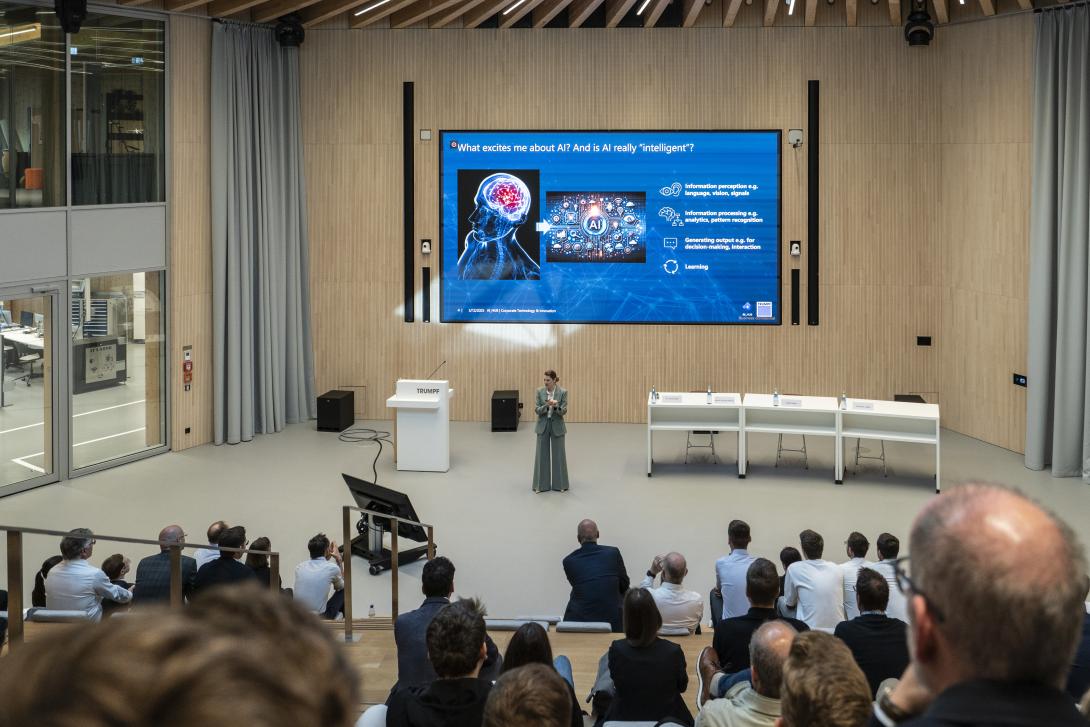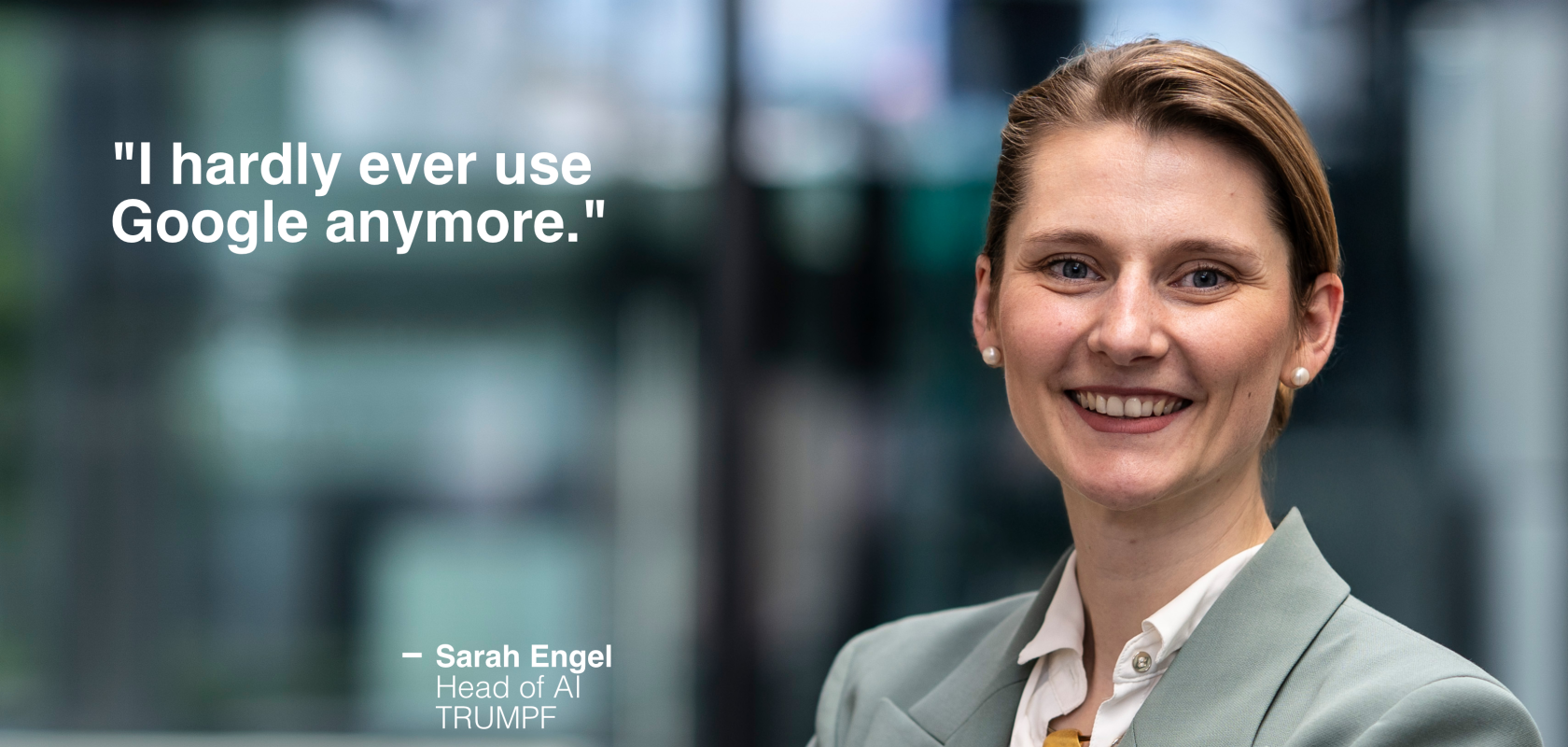Sarah Engel, TRUMPF’s Head of AI, discusses why the company is investing in artificial intelligence, how it’s set to reshape the way we work and where the limits lie.
Why does TRUMPF rely on AI?
We are convinced that AI is a decisive factor for the future of our work, our products and our services. It allows us to optimise processes, increase efficiency and develop new solutions. TRUMPF has always been committed to high technology, and we want to play a leading role in AI as well.
Where does TRUMPF find AI most useful?
AI imitates cognitive abilities such as speech comprehension, image processing or pattern recognition. It processes large amounts of data to identify patterns, make predictions, automate tasks, or generate texts and images. At TRUMPF, we see potential uses for AI in sales, HR, research, development and production. Our aim is to use AI to create added value in as many areas of the company as possible.
Can these efficiency gains provided by AI be measured?
Yes. We are identifying areas where AI delivers significant value and rolling them out step by step. Benefits we’ve already seen include faster and more personalised customer service, more cost-effective and comprehensive training, more efficient software development, cost and energy savings in production, and product innovations that drive revenue. The challenge is not finding use cases but implementing them in a focused and measurable way.

At internal events, TRUMPF employees can learn about artificial intelligence and exchange ideas with each other (Image: TRUMPF)
How does TRUMPF train employees to work with AI?
We offer training on our intranet for all levels – from beginner to expert. This includes courses, mentoring and interdisciplinary working groups. We’re training AI specialists in-house and deepening their expertise in specific areas. The curiosity and motivation of our employees are a big advantage in anchoring AI in the company.
What challenges are involved in becoming an AI-driven company?
Work will change dramatically as a result of AI. We need to be more agile and flexible – not just in our company processes, but also as individuals. That means having the courage to take action – make decisions and keep moving forward. On top of that, a number of technical requirements need to be met to apply AI effectively in different areas.
What sets TRUMPF apart in developing AI solutions for industry?
We combine specialist technical knowledge, customer orientation and a sense of responsibility to gain a competitive edge. Because we control the entire process chain – from hardware to service – we can integrate AI into products and processes tailored to our customers’ needs. Acting responsibly is a priority for us, and this includes handling customer data sensitively when it comes to AI. Gaining and retaining our customers’ trust gives us a competitive advantage.
How do TRUMPF’s German roots help take advantage of AI?
Europe has a unique opportunity to combine its deep-rooted industrial expertise and sense of responsibility in how it uses AI. I see this combination as the key to sustainable innovation, and it’s something that sets us apart from other countries such as the US and China.

As Head of AI, Sarah Engel shares her knowledge of artificial intelligence with TRUMPF employees (Image: TRUMPF)
Why do we still need humans?
People are, and will remain, at the centre of TRUMPF’s work. AI is comparable to the steam engine, the printing press or electricity in terms of a technological leap, but it is a tool. It supports us and pushes us beyond our limits, but it doesn’t replace us.
What about data protection?
Responsible use of AI goes hand in hand with data protection. TRUMPF has technological security mechanisms, but it is important to understand that data security starts with individual employees. For example, large language models like ChatGPT use huge amounts of data, and if employees enter sensitive information, it could leak. That must be avoided. When developing AI, we always consider what data is being used, for what purpose, what the risks are and how we can keep them in check. We work closely with our legal, IT, and cybersecurity teams on data security.
What AI tools do you personally use?
I hardly ever use Google anymore. Instead, I rely on tools like Perplexity or Claude – they make research much easier, can deal with context more precisely and provide sources so you can verify the answers. I also use our internal AI tool, blueGPT, every day. My advice to colleagues is to try out different AI tools. The best way to learn how to work with them, is by using them.


